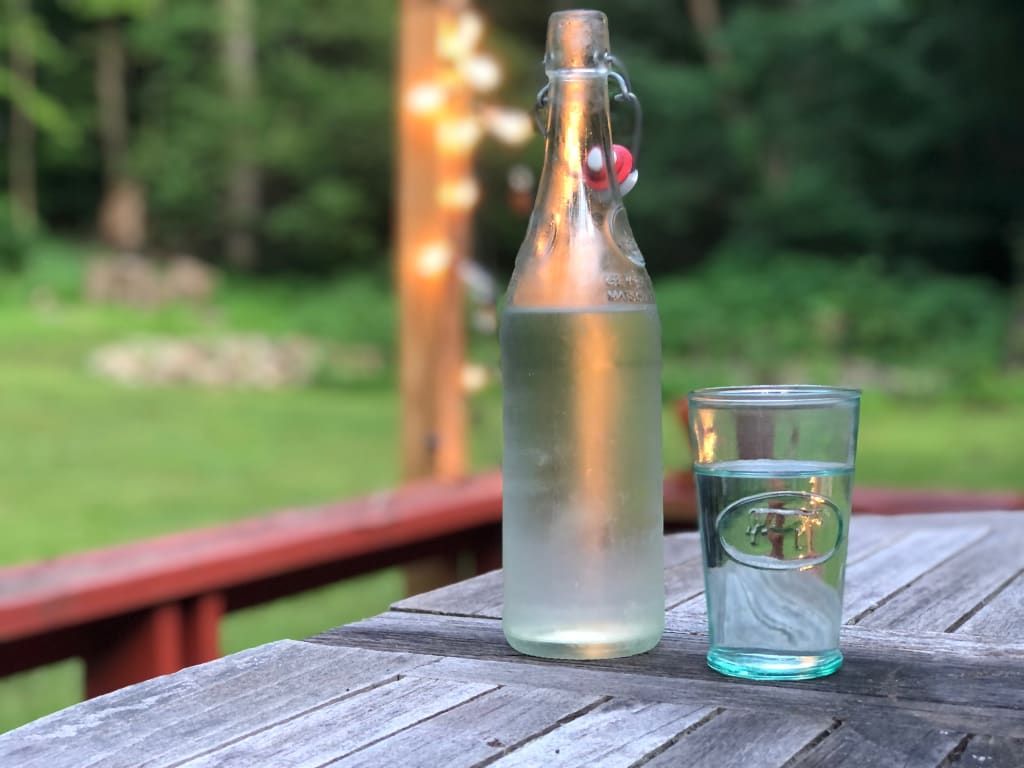Writing To Keep From Screaming
Writing it down can make all the difference.

I’ve always envied those who can lose themselves in creating intricate masterpieces with colorful skeins of yarn or spools of fine thread when the need for a bit of peace is required. Distance, even emotionally or figuratively, is essential for processing a demanding experience or situation. Is it ironic or just pathetic then, that, as a writer, I find peace and distance in the activity of writing? At the times when the fuse is down to it’s last millimeter there is usually only one thing and one thing alone that is able to extinguish it before I blow: writing it down. And not just because I’m a writer or because I’m too uncoordinated to learn to crochet (I tried). Writing is a way a human can process his or her or their own experiences and make sense of them. Or not.
I have returned to writing more regularly after a long break of not writing. I still kept my hand in…literally…but there was no discipline to my work, no commitment to my craft. We brought my dad home to live with us after my mother died and for four years, that’s where my energy was focused. We lost him this year. Now, writing is like taking a long cool drink of water after a walk down a long, hot dusty road.
Writing is restorative and healing.
I believe that with all my heart. Fortunately, it is also supported by research. When I had to choose a topic for my thesis to complete my master’s degree in Education, I chose to write about writing. The title is, “Writing Out Loud: Overcoming the Fear and Understanding the Pleasure of Writing” and in it I cited research on the health benefits of writing it down. Many case studies were done in a medical environment to indicate that writing helped patients get through a difficult diagnosis or long-lasting and even terminal illnesses. But the most interesting thing I found, and something I continue to include in all my writing classes since, is that writing is a phenomenological process that is intrinsic to us humans to make meaning of our lives.
When I teach writing to young children, they are brave and confident. They can’t get the words out of their brains and onto the paper fast enough. By the time I get to the adults, many are apologetic and afraid. One woman in particular always stands out in my mind and I use her as an example in most of my classes. She wasn’t a student of mine, but an educator who led the integration of technology in one of the largest school districts in our state. She also took on a number of other responsibilities (not unusual in public education) and the first time I met with her as a potential professional development workshop provider, she scared the shit out of me. She was accomplished and focused and demanding. And intimidating. Despite my fear, I started working with her on a regular basis and we became friends. One day, after she learned that I was really a writer masquerading as a professional development specialist, she confided in me that she “couldn’t write.” I looked at her in astonishment. She was in the middle of a demanding PhD program in addition to her 50-hour a week job. She wrote grants and reports and loads of technical papers and was about to embark on her doctoral thesis. And she couldn’t write? I was dumbfounded.
Because of course she could. She did. And probably continues to this day. As Michael Feldman once said on the NPR radio show “Whaddya Know?”, “Writing should not be the province of the few.” But so many of us think that is true. Legitimate writers make it to the New York Times bestseller list. The rest of us have that little devil on our shoulder whispering in our ears, “What do you think you’re doing? You can’t write!” (My little devil looks like Miss Gilpin from 4th grade, with her shoulder-length black-and-gray hair and thick, black-rimmed glasses and boiled wool suits. I think she was eight feet tall.) I’m not guessing people think this; I hear it from accomplished, published writers all the time. What I’d like to say to all of us is: Relax. Sit down, grab your pen and have a nice tall glass of water.
Here’s the thing about writing:
It’s a part of everyone’s life and not just the domain of a few so-called authors. Writing as a phenomenological process allows us humans to process our understanding of the meaning of life—our lives. This ability shows up differently for all of us, but it is as much a part of our nature as expressive beings as the ability to think and speak. This is how I understand writing and it is affirmed for me especially when I teach--semester after semester, class after class, student after student.
Teaching is one of the greatest pleasures I have and it is one of the things I do to create a writing life. I have taught students from kindergarten to retirement and most ages in between in informal classes, workshops and community college. Whatever I’m teaching, my goal is always to facilitate enough time to allow each writer to learn to hear his or her or their own writing voice. I am never disappointed in my classes; the moment when a student of any age discovers their voice is a tangible thing. It’s in their expressions and their body language. I can hear it…and it sounds like surprise and confidence and giddiness all at once. I’m addicted to it.
All ages of student experience this breakthrough, but none so profound as the older students I’ve taught. One year, a reticent student respectfully passed up opportunities to read from his work until the morning he read about the day he and his squad shot an Egyptian soldier and carried him around in their tank during the Six Day War. The class was speechless and I couldn’t believe his bravery, 40 years earlier and that morning. Another student, a seemingly timid woman, immediately professed to being a complete novice at writing, but then surprised us all with her raw and heartfelt prose about the difficulties and challenges in her life. She spared no one, primarily herself. She wrote to me at the end of the semester and thanked me for...well, I’ll be honest with you, I have no idea why she was thanking me. I didn’t do anything; it was all her. Her life, her words, her voice.
I’ve always wanted to be a writer. It was my dream growing up, but I had trouble making it important in my life and my life-decisions until the dream began dovetailing with my understanding of the writing process. When I published my first book, I felt like I had achieved some success—finally. Continuing to manifest a writing life means—to me—that I understand all that writing is. And mine is a writing life indeed, because it is taking all my life to live it, understand it and make the most of it. One time, I was searching for a collective noun to refer to writers and I almost made one up (a revision of writers?) until I found a website with a generally accepted term: A worship of writers. One definition of worship is to love or honor (someone or something) very much or too much and that made sense to me. Sometimes, I feel like I worship writing too much and maybe this is why I have, on occasion, put it ahead of groceries or education or a reliable car. Living a writer’s life might not be the most lucrative thing a girl can do, but even as I look back on my life so far, my only regret is not writing more.
And after four years of being on a forced hiatus, it’s time to get back to writing. When I’m agitated, hurried, tired or drained and I look to some restorative function to pick me back up again, I often forget how simple the answer is. I forget that it’s the figurative long cool drink of water I need. I need to write. I need to process. And when I remember – writing restores me and brings me peace.
About the Creator
Cindy Eastman
Cindy Eastman is a teacher, speaker & award-winning author of Flip-Flops After 50. Some stuff is funny, some is thoughtful.
Follow me on Facebook and read more here & let me know what you think.
I look forward to hearing from you.






Comments
There are no comments for this story
Be the first to respond and start the conversation.